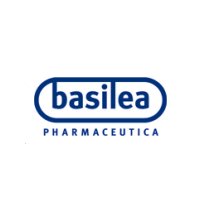New research data on Basilea's novel oncology drug candidate presented |
21.04.2010
| from Basilea Pharmaceutica International

21.04.2010, New research data on Basilea's antitumor drug candidate BAL101553 (prodrug of BAL27862) was presented at the American Association of Cancer Research (AACR) Annual Meeting in Washington D.C. The novel, intravenous and orally bioavailable small molecule disrupts the intracellular microtubule network, a well established drug target in oncology. The data confirm that the compound elicits a unique microtubule phenotype and shows activity in a wide range of cancer types, including those resistant to current treatment options.
Despite progress in the development of agents with antitumor activity, cancer remains a significant challenge in healthcare. There is an increasing medical need for novel agents with new mechanisms of action that overcome drug resistance in cancer therapy.
BAL101553 (prodrug of BAL27862) - a unique mode of action
Microtubules are one of the components of the intracellular scaffold (cytoskeleton). They are involved in many essential cellular processes and are a well established target of anticancer drugs. In-vitro data generated in collaboration with Prof. Diane Braguer's team, Institut national de la santé et de la recherche médicale, Université de la Méditerranée, Marseille, France, confirm that BAL27862 suppresses microtubule dynamics in living cancer cells. Furthermore, the distinct microtubule phenotype induced by BAL27862 is associated with an apparent severing of the microtubules leading to their fragmentation (M.-A. Esteve et al., abstract #1977; selected for oral presentation).
Studies from the same group and from the group of Prof. Branimir Sikic, Stanford University, School of Medicine, California, USA (G. E. Duran et al., abstract #4412), further demonstrate that BAL27862 has broad activity against a panel of breast and ovarian cancer cell lines resistant to currently marketed microtubule-targeted therapeutics. BAL27862 not only overcomes P-glycoprotein-mediated resistance, but also resistance related to modifications in the expression of proteins involved in tumor cell survival and microtubule function, respectively. The distinct microtubule phenotype and anticancer profile associated with BAL27862 supports evaluation in cancer patients with treatment-refractory tumors.
Basilea also presented for the first time data characterizing BAL101553, a prodrug of BAL27862 (J. Pohlmann et al., abstract #4419). The high water solubility of BAL101553 allows intravenous administration in the absence of solubilizing excipients which are known to be associated with adverse side-effects in patients. This characteristic, together with a demonstration of favorable pharmacokinetic properties and efficacy in animal tumor models, confirms that BAL101553 has the potential to be conveniently administered as a prodrug of the active compound BAL27862.
The phase I clinical development program to investigate the drug candidate in humans is expected to be initiated in H2 2010.
Further informationes:
Adesh Kaul Head Public Relations & Corporate Communications +41 61 606 14 60 media_relations@basilea.com
--- END press release New research data on Basilea's novel oncology drug candidate presented ---
BAL101553 (prodrug of BAL27862) - a unique mode of action
Microtubules are one of the components of the intracellular scaffold (cytoskeleton). They are involved in many essential cellular processes and are a well established target of anticancer drugs. In-vitro data generated in collaboration with Prof. Diane Braguer's team, Institut national de la santé et de la recherche médicale, Université de la Méditerranée, Marseille, France, confirm that BAL27862 suppresses microtubule dynamics in living cancer cells. Furthermore, the distinct microtubule phenotype induced by BAL27862 is associated with an apparent severing of the microtubules leading to their fragmentation (M.-A. Esteve et al., abstract #1977; selected for oral presentation).
Studies from the same group and from the group of Prof. Branimir Sikic, Stanford University, School of Medicine, California, USA (G. E. Duran et al., abstract #4412), further demonstrate that BAL27862 has broad activity against a panel of breast and ovarian cancer cell lines resistant to currently marketed microtubule-targeted therapeutics. BAL27862 not only overcomes P-glycoprotein-mediated resistance, but also resistance related to modifications in the expression of proteins involved in tumor cell survival and microtubule function, respectively. The distinct microtubule phenotype and anticancer profile associated with BAL27862 supports evaluation in cancer patients with treatment-refractory tumors.
Basilea also presented for the first time data characterizing BAL101553, a prodrug of BAL27862 (J. Pohlmann et al., abstract #4419). The high water solubility of BAL101553 allows intravenous administration in the absence of solubilizing excipients which are known to be associated with adverse side-effects in patients. This characteristic, together with a demonstration of favorable pharmacokinetic properties and efficacy in animal tumor models, confirms that BAL101553 has the potential to be conveniently administered as a prodrug of the active compound BAL27862.
The phase I clinical development program to investigate the drug candidate in humans is expected to be initiated in H2 2010.
Further informationes:
Adesh Kaul Head Public Relations & Corporate Communications +41 61 606 14 60 media_relations@basilea.com
--- END press release New research data on Basilea's novel oncology drug candidate presented ---
More information and links:
Basilea Pharmaceutica International
(company entry)











